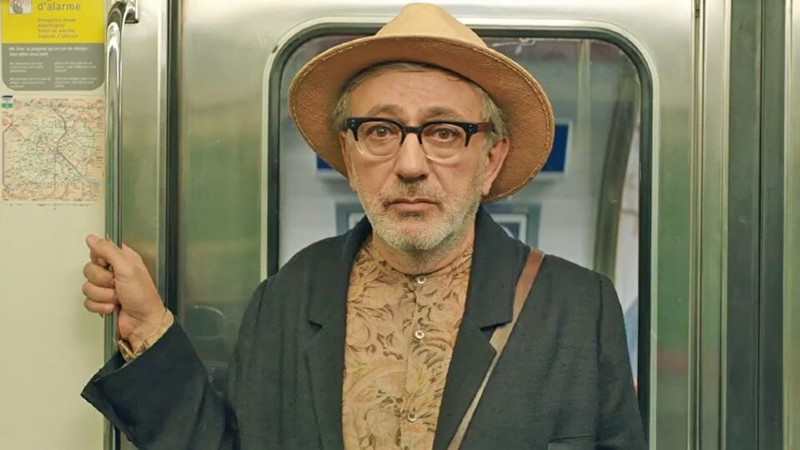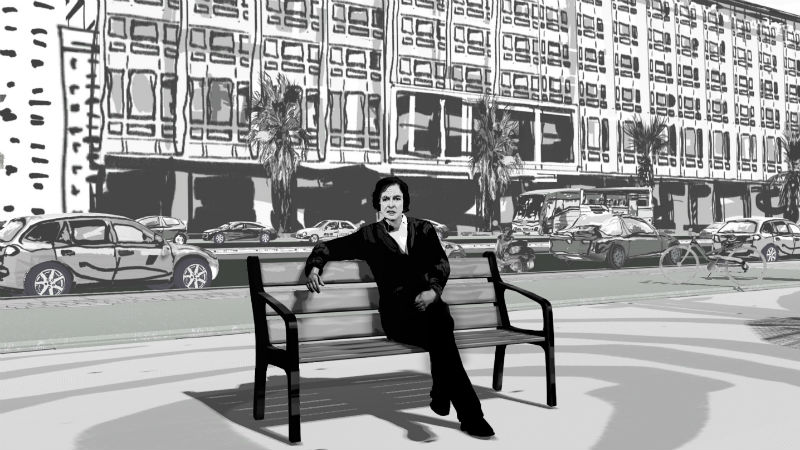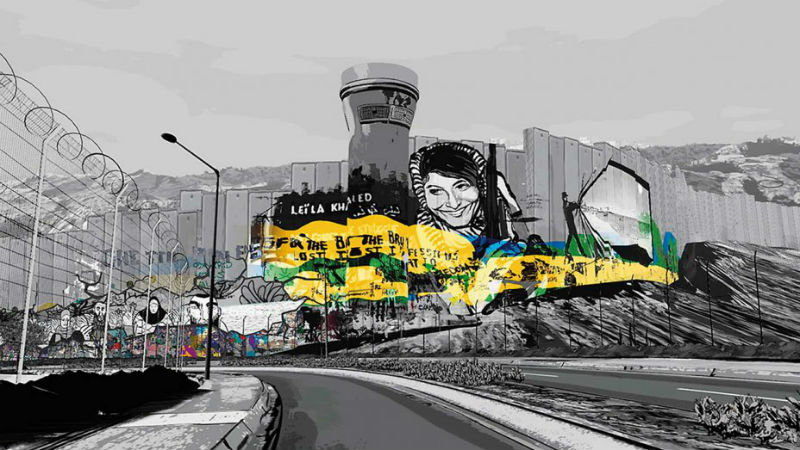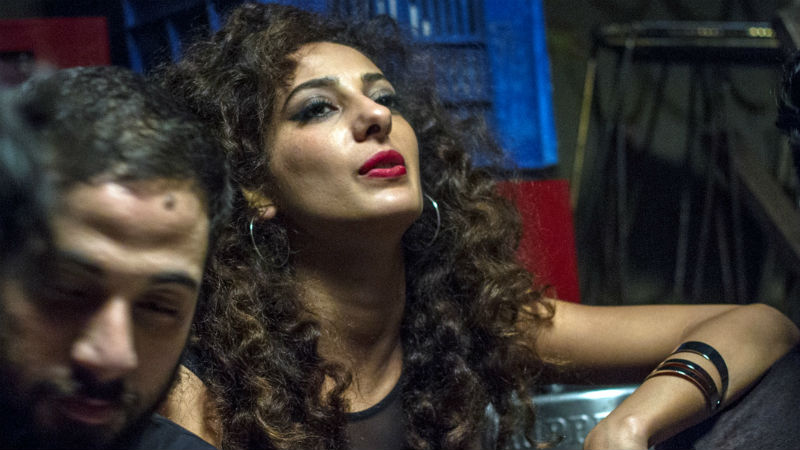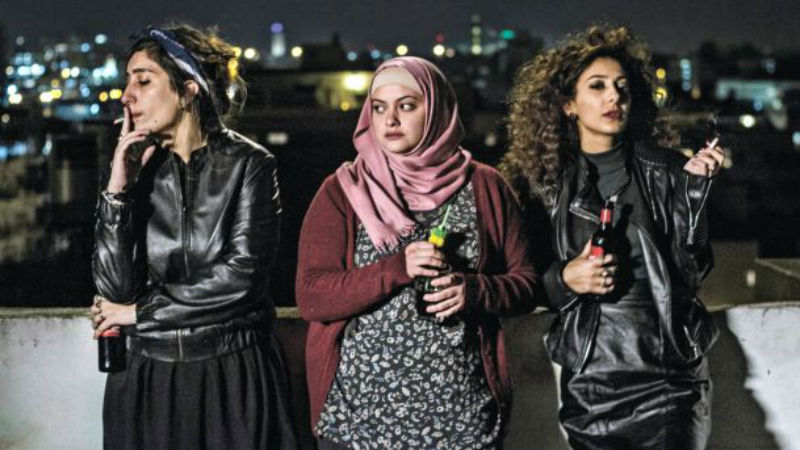QUICK SNAP: LIVE FROM TRANSYLVANIA
Amira (Tara Abboud) is a daughter of the revolution. She has never hugged her father, who has been in prison as a Palestinian political prisoner for as long as she remembers. She is also a skilled photographer, fiddling around with photoshop and placing her image next to her father’s on fake holidays to Hawaii. It’s a handy metaphor for the film as a whole, which explores in great depth the true meaning of family, home and the impossibility of living under occupation.
Her father is a beatific man, oddly resembling Zelensky in his demeanour with a saintly look and a neatly trimmed beard. He is considered a hero in Palestine, married to Amira’s mother despite not being legally able to attend his own ceremony. But if he lives in a literal prison, Palestine is the biggest metaphorical open-air prison in the world, a place where secrets never remain that way for long and everything is pervaded with an ever-increasing sense of dread.
The setting is ripe with dramatic potential, which director Mohamed Diab exploits to fine effect in this smart and sensitive film. It’s based on the real phenomenon of semen smuggled out of Palestinian prisons by its forever-inmates; her father used this technique to aid Amira’s birth and he wants to do it again so she’ll have a companion. (It’s worth pointing out that there has been a backlash to the exact depiction of this process in the Palestinian press, leading to some calling for the film’s removal from the festival circuit). Yet when things start to go awry, her very identity is put into question, creating a smart metaphor for Palestine itself, a country that exists and doesn’t exist at the same time due to Isreal’s unending occupation.
There is a touch of Asghar Fahradi to the way the plot progresses, putting an oppressive society and its attendant patriarchal structures into conflict with one another through well-observed dramaturgy and naturalistic touches. But there is solid flair in the filmmaking as well. A reverse mirror shot is deployed twice in the film, showing you someone from one angle before turning around and showing them from the other side; it’s as if to show you that there’s always a different way of looking at things, and how nothing is ever clear cut. In another stand-out shot, with Amira and her father engaged in a crucial conversation, her face is superimposed against the window of her father in prison, evoking previous photographs in the way it creates intimacy in an otherwise alienating setting.
The biggest flaw is with Amira herself. Abboud is playing a 17-year-old, but oftentimes she doesn’t quite act like one, with far more conviction than a confused teenager would otherwise have. It might be necessary for the dramatic arc of the film — which bends to an absolute bitter and savage irony by the end — but it makes her unconvincing. This isn’t the fault of the actress herself, who carries both betrayal and determination with ease, but the way that she’s pitted against both the brutality of the Israeli’s and the patriarchy of the Palestinians. It’s a fine line to tread: with a third act that can’t bite into the awfulness of the situation and the impossible ways of fighting against it, Amira certainly gives you a lot to think about, but doesn’t quite land with the devastating impact that such a clever set-up deserves.
Amira plays as part of the Supernova section of the Transylvania International Film Festival, running from 17th to 26th June.









